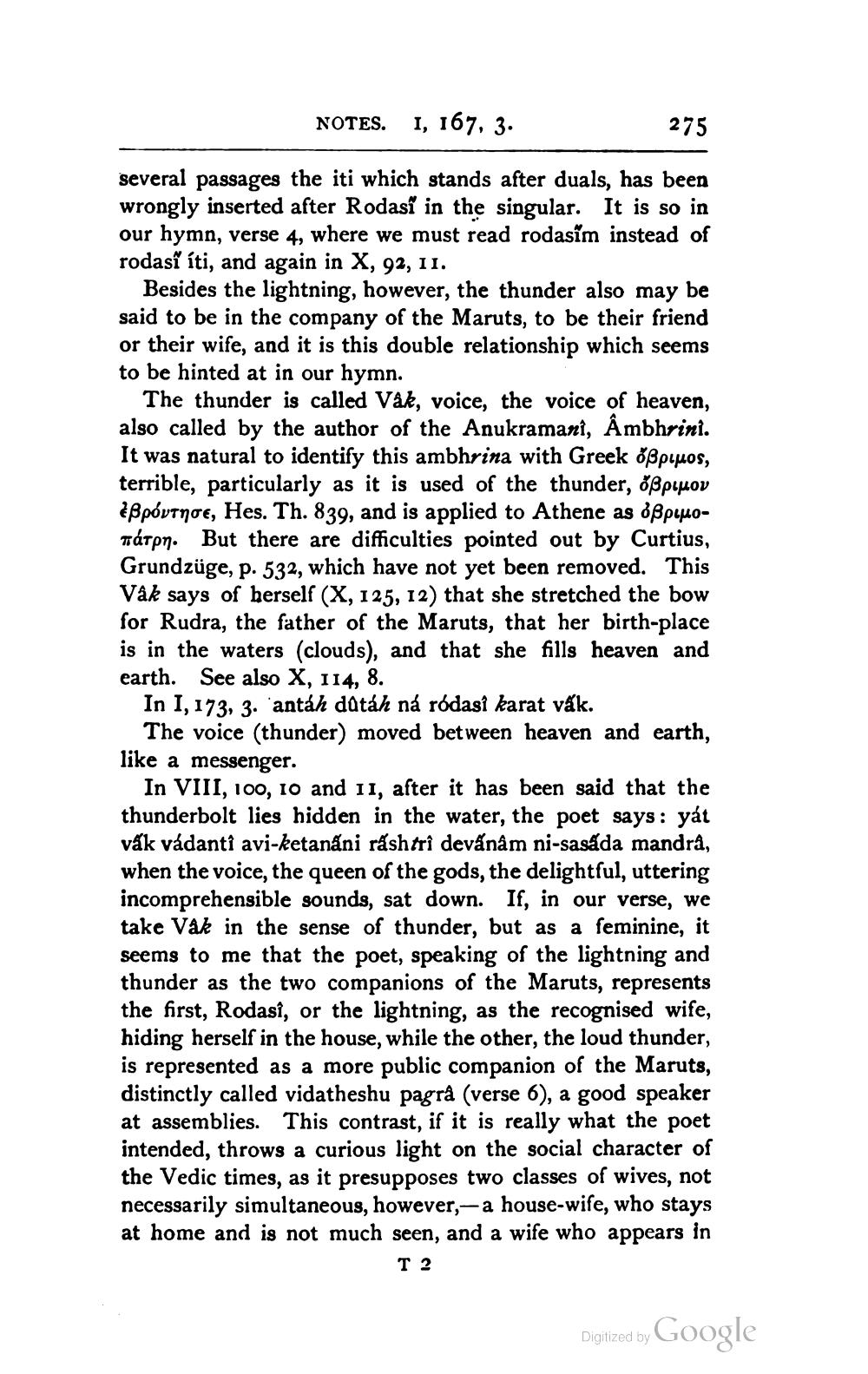________________
NOTES. I, 167, 3.
275
several passages the iti which stands after duals, has been wrongly inserted after Rodasî in the singular. It is so in our hymn, verse 4, where we must read rodasim instead of rodasî íti, and again in X, 92, 11.
Besides the lightning, however, the thunder also may be said to be in the company of the Maruts, to be their friend or their wife, and it is this double relationship which seems to be hinted at in our hymn.
The thunder is called Vâk, voice, the voice of heaven, also called by the author of the Anukramani, Âmbhrini. It was natural to identify this ambhrina with Greek oßpiμos, terrible, particularly as it is used of the thunder, oßpiμov ¿ẞpóvτnoe, Hes. Th. 839, and is applied to Athene as oßpuoTárрn. But there are difficulties pointed out by Curtius, Grundzüge, p. 532, which have not yet been removed. This Vâk says of herself (X, 125, 12) that she stretched the bow for Rudra, the father of the Maruts, that her birth-place is in the waters (clouds), and that she fills heaven and earth. See also X, 114, 8.
In I, 173, 3. antáh dûtáh ná ródasî karat vak.
The voice (thunder) moved between heaven and earth, like a messenger.
In VIII, 100, 10 and 11, after it has been said that the thunderbolt lies hidden in the water, the poet says: yát vák vádanti avi-ketanani rashtrî devánâm ni-sasáda mandrâ, when the voice, the queen of the gods, the delightful, uttering incomprehensible sounds, sat down. If, in our verse, we take Vâk in the sense of thunder, but as a feminine, it seems to me that the poet, speaking of the lightning and thunder as the two companions of the Maruts, represents the first, Rodasî, or the lightning, as the recognised wife, hiding herself in the house, while the other, the loud thunder, is represented as a more public companion of the Maruts, distinctly called vidatheshu pagrå (verse 6), a good speaker at assemblies. This contrast, if it is really what the poet intended, throws a curious light on the social character of the Vedic times, as it presupposes two classes of wives, not necessarily simultaneous, however, a house-wife, who stays at home and is not much seen, and a wife who appears in
T 2
Digitized by Google




